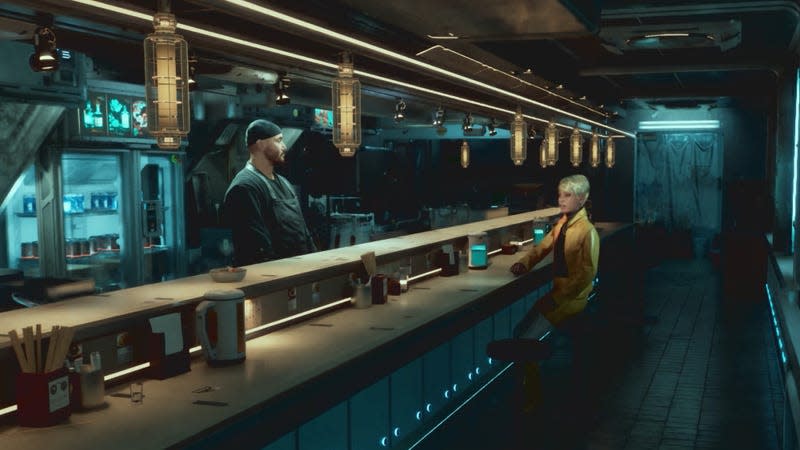AI Video Game Characters Seem As Soulless As You'd Expect

Think of your favorite video game character. Picture them in your head, remember their stories and the actors’ performances that made them stick with you long after you put the controller down. Maybe you’re thinking of Astarion from Baldur’s Gate 3, whose actor Neil Newbon recently won the Best Performance award at the 2023 Game Awards. Or maybe your mind went to your favorite iteration of Link from The Legend of Zelda franchise, who has stayed with you over the years with each new game in the series, despite never speaking.
Remember that everything you love about that character was created by a team of writers, artists, and actors who combined their immense talents to bring that hero, villain, or companion to life. Nvidia, the company responsible for many of the graphics cards in high-end PCs, announced an AI-powered NPC generator called Omniverse Avatar Cloud Engine alongside AI tech company Convai last year. It attempts to emulate the same writing, acting, and animation that all those talented people create to make those characters impactful. There’s a key distinction, however: It sucks.
Read more
This Stomach-Churning Conservative May Be Donald Trump's VP Pick
What! Republican Chair Throws Famous Black Congresswoman Out Of Hearing
Even If You Own A Subaru WRX, Don't Drift To Pass Semi Trucks In The Snow
A lot of work seems to have gone into making the simulation feel real. Convai Head of Product Nyla Worker explained to The Verge that each NPC has some backend programming meant to give them a central ethos, including a character description, knowledge bank, and personality traits like if they’re extroverted or introverted. So these AI-powered NPCs essentially have a digital character sheet they draw from so they don’t break off from their role. But again, that’s just an AI being trained to emulate a specific archetype so it can cosplay being a person. The characters you love made the impact they did because someone created them, not because an algorithm put them in front of you to bark a generated backstory. Writers, animators, and actors imbue them with a sense of realness, as if they have actual identities and their own hopes and dreams.
All of this follows thousands of layoffs across the video game industry in just the first 19 days of 2024. This kind of callous treatment of workers and their labor is only allowed to persist as executives refuse to take pay cuts and look for outs like Nvidia’s tech to keep pumping out video games without having to pay people to craft them.
More from Kotaku
I Cut The Roof Off Of My Porsche 996 Turbo And I Might Throw Up A Little
We should all follow Paul Schrader's lead and write film reviews while on Ambien
Here Are Even More Racist Texts From the White California Cop Who Shot A Black College Student
Sign up for Kotaku's Newsletter. For the latest news, Facebook, Twitter and Instagram.


